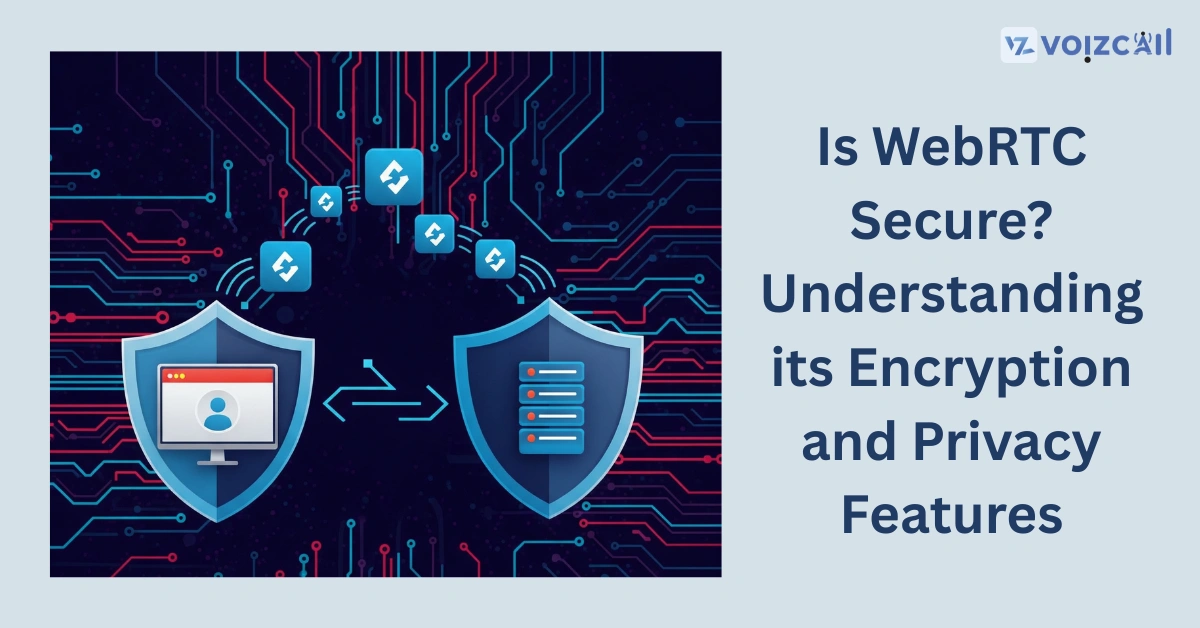


29/May/2025
Security is often our first concern when we have online meetings or calls. WebRTC is a technology you may know about because it supports video calling directly from the browser. Still, people tend to
Is WebRTC a secure choice for video conferencing?
I’ll explain how WebRTC protects your privacy and privacy. You’ll see how WebRTC remains safe and what problems to avoid when using it for calls.
What Does WebRTC Mean?
Call / Email for Sales Inquiry Today
Just as we’re starting security, let’s quickly review what WebRTC is. The name of the technology is Web Real-Time Communication, shortened to WebRTC. You can make calls by voice or video right in your web browser or app, without needing plugins. Whether you’re on Google Meet or Zoom, it’s easy, fast and widely available.
How Well Does WebRTC Guard Video Conferencing Against Attacks?
When using WebRTC, all your calls are strengthened by strong encryption. Because your audio and video information are unreadable, private calls remain secret from everyone besides the participants. It applies DTLS and SRTP tech to ensure the security of the data.
The fact that WebRTC uses encryption makes it much less likely for nosy people to spy on your calls.
Methodology for Making Your Voice Calls Safe
Here are some key WebRTC security features that help keep your communication safe:
Media streams between participants are automatically encrypted using WebRTC.
This process checks that every user is precisely who he/she claims to be before being allowed to connect.
WebRTC doesn’t document the signaling process, so most apps depend on HTTPS or WebSockets for security when setting up a call.
How Important Is WebRTC Signaling Security?
Although WebRTC encrypts the media (audio and video), the signaling part — where your devices exchange information to start a call — needs its own security. If signaling is not protected, attackers could intercept call details or disrupt the connection.
Thankfully, most modern apps use secure protocols (like HTTPS) for signaling to avoid these risks. Always ensure your video conferencing app handles signaling securely.
Preventing WebRTC IP Leaks in Browsers
An issue with WebRTC is that it may allow your IP address to be revealed. Sometimes, VPNs don’t prevent your websites and applications from seeing your real IP address.
Use browsers that have WebRTC leak protection (like Firefox or Brave).
Adjust browser settings or install privacy extensions that block IP leaks.
Choose video conferencing tools that actively prevent IP leaks.
Being mindful of this can keep your online identity safer.
WebRTC Privacy Features You Should Know About
Besides encryption, WebRTC offers other privacy protections:
It can only use your camera and microphone after you give your explicit permission.
Your video and audio aren’t kept on servers because most calls happen directly between two devices.
Some apps add additional layers like access controls and logging to improve privacy.
So, Is WebRTC Suitable for Your Video Calls?
In other words, is WebRTC really safe? The simple response is that signal does have protection and privacy features for all your video and voice calls. At times, leaks of your IP address or simple mistakes during signaling may happen if your apps or browsers aren’t set up properly.
Pay attention to video conferencing options that rely on WebRTC security, avoid IP leaks and are signaled securely. Knowing more gives you tools to support private and secure calls.
What steps do you take to protect your video calls online?